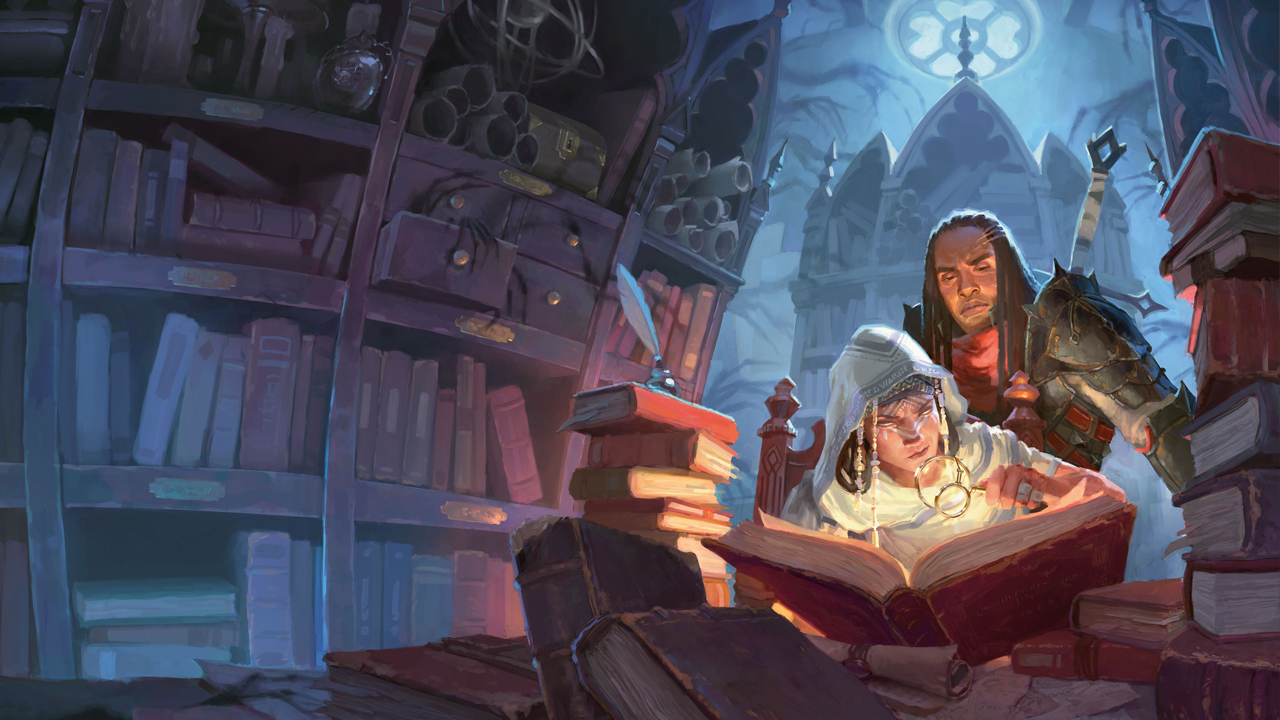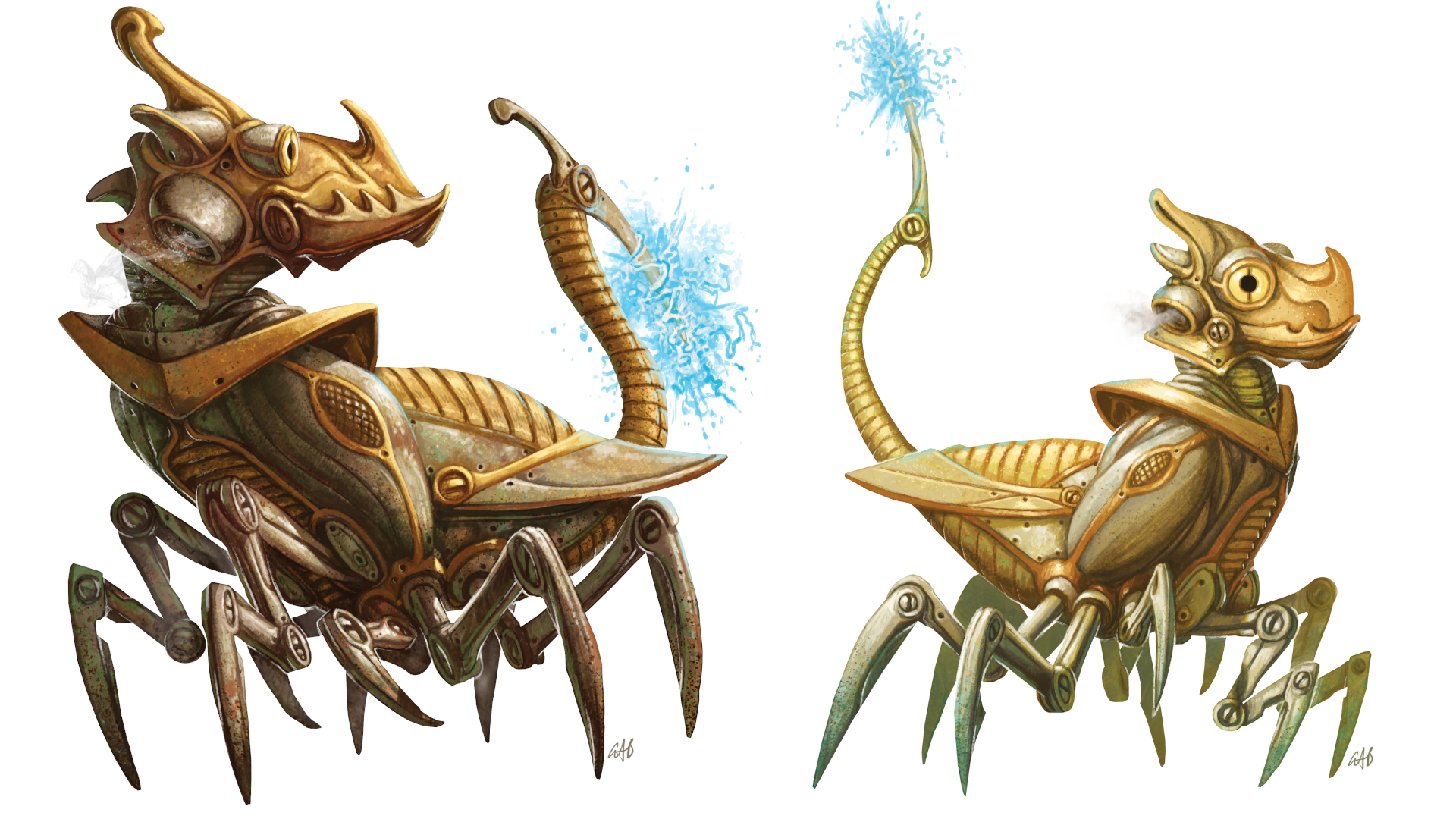How do you write a Dungeons and Dragons campaign? A Candlekeep Mysteries writer explains
An exclusive Candlekeep Mysteries interview with Dungeons and Dragons writer Amy Vorpahl

How do you write a Dungeons and Dragons campaign? It's something most Dungeon Masters dream of doing, and it's the dream for many fans of the best tabletop RPGs. The process isn't what you'd expect, though. In fact, it's probably quite the opposite. According to Amy Vorpahl (one of more than a dozen writers on the Candlekeep Mysteries anthology), the best approach is to throw what you know about storytelling out of the window. If anything, it's more like putting together instructions for an Ikea manual. Only with more monsters.
Keeping secrets
You don't need to hide anything… you're writing a letter to the Dungeon Master
Amy Vorpahl
This manual is firmly tongue-in-cheek when it comes to Vorpahl's adventure, Kandlekeep Dekonstruktion. Every adventure in the book revolves around a mystery that begins within the Forgotten Realms library of Candlekeep, but this one is much quirkier than most; featuring a stolen tome and disgruntled janitors harboring plans for revenge, it leads players to a tower that ends up being much more than it seems. Although saying anything more would ruin the surprise, it's refreshingly lighthearted and wouldn't be out of place in the pages of a Terry Pratchett or Douglas Adams novel.
However, twists of the kind you'd find in those books are frowned upon. They are on the written page, at least. The aim isn't to surprise Dungeon Masters, it's to serve up secrets on a golden platter instead. Revealing heel-turns is for the DM, and that's why they need to know everything from the start. It's a very different way of thinking that caught actor, writer, and longtime Dungeon Master Vorpahl off-guard.

"It's so counterintuitive as a writer," she tells us when we sit down for an exclusive chat about Kandlekeep Dekonstruktion. "You are not writing a narrative story, you're not writing plot. So you don't need to hide anything… you're writing a letter to the Dungeon Master. And then the Dungeon Master who's reading it is able to extrapolate and play their version of what you wrote."
As a result, adventure writers are actually crafting a playground rather than a story. Littered with toys and tools like a jungle-gym of the imagination, it's an invitation to come play - or not, as the case may be. That's the hardest part of writing your own Dungeons and Dragons campaign: knowing that chunks of your hard work are going to be missed or ignored.
"You have to turn off the Dungeon Master brain in order to write because you do not get to decide all the hypotheticals that could possibly happen," Vorpahl reveals. "You are literally there to name and define places and people, and to give those people a small smidgen of what their motivation is and what they expect."
Whatever you write, players will just do whatever you think they won't do
Amy Vorpahl
The bizarre but loveable contraptions known as skitterwidgets - initially conceived as "baby rocketships" and inspired by modrons from one of the other Dungeons and Dragons books - demonstrate why this is important.
Sign up to the GamesRadar+ Newsletter
Weekly digests, tales from the communities you love, and more
"So [skitterwidgets] can reproduce and produce Kiddywidgets," Vorpahl explains. "And the fun thing about that is I wrote them to have stats. But Chris [Perkins, project lead] was like, 'these are babies. Whether they're baby animals, constructs, or people, do you really want to give them stats? Because that means people can kill them. So just make them noncombatants.' And I was like, 'oh my gosh, totally'. Then, in playtesting, adventurers 100% wanted to kill these babies. Whatever you write, players will just do whatever you think they won't do."
That special something
That doesn't mean you can't have fun when writing your own Dungeons and Dragons adventure, though. For Vorpahl, a sense of humor was crucial to putting her stamp on the D&D universe.
"I like the idea of kind of messing with stuff... If [Forgotten Realms creator] Ed Greenwood can get a little mad at me, that would be awesome."
There's more to this approach than rattling cages, though. So far as Vorpahl is concerned, leaning into what interests you is key when writing a D&D adventure - even if you're not sure anyone else will like your idea.

As she puts it, the real gift of being creative is yourself; countless people can write, but no-one else thinks like you do. Seeking to deliver what you think the audience wants will only rob your writing of that special something.
"I definitely am down with people-pleasing. But for this opportunity, it was a little too magical to put in other people's hands," she says. Instead, Vorpahl opted to place all that to one side and simply delight herself.
Your point of view is 100% valid
Amy Vorpahl
The result is entirely unique. Besides fed-up janitorial staff, the cast features agriculturally-themed cultists with names like 'Donkey Biscuit' because it amused her (though some were sadly cut - RIP, Dog Nuts).
This is one of the most important tips Vorpahl can offer - be true to yourself. Not everyone will like your work, but that's OK. If you're enjoying yourself, someone else will. More specifically, "your point of view is 100% valid. Whether it's too silly or too dark, or whatever, someone's going to find that and be like, 'wow, I never would have thought of this, it would be perfect for my thing'."
What would be her advice for would-be adventure writers, then? "Write the adventure that you think would be fun to play with your players," she concludes. "Because that's kind of the only roadmap you have. And it'll give your adventure this unique quality."
Candlekeep Mysteries is now available from Amazon US, Barnes and Noble, and Amazon UK. While you wait for it to arrive - or learn how to play D&D online so you can get involved virtually - be sure to check out our other tabletop recommendations. More specifically, we've got plenty of suggestions for the best board games, the best card games, and board games for 2 players.

I've been writing about games in one form or another since 2012, and now manage GamesRadar+'s tabletop gaming and toy coverage. You'll find my grubby paws on everything from board game reviews to the latest Lego news.


